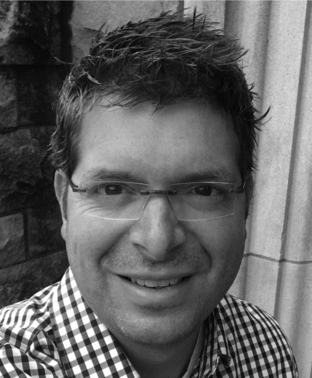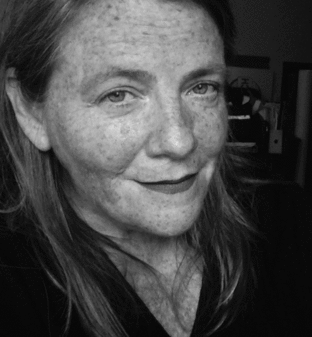As experienced teacher researchers, we believe the field has moved beyond the need to validate teacher research as a worthy form of scholarship. Rather than reiterating this sentiment, which has already been persuasively argued by a variety of experts (e.g., Cochran-Smith & Lytle, Citation1999; Herr & Anderson, Citation2015; Zeichner & Noffke, Citation2001), we use these final pages to capture a number of salient themes arising from the nine articles in this issue, which substantiate and broaden our knowledge about the teaching and learning of teacher research.
These coauthored studies emphasize how the work unfolds and deepens over time, while also demonstrating how teacher research is rarely taught, learned, or lived in isolation. The idea that teacher researchers benefit from collaborating with others (Meier & Henderson, Citation2007) manifests itself in the piece by McEachern and Horton, who discuss how they work closely together to cultivate what they call a research mindset within their school setting. Similarly, Lawton-Sticklor and Bodamer use weekly unstructured meetings to question and discuss their own learning in order to change the way they think and, therefore, research and teach.
Many are familiar with Cochran-Smith and Lytle's (Citation2009) idea of inquiry as stance—“the collective intellectual capacity of practitioners to work in alliance with others to transform teaching, learning, leading, and schooling in accordance with democratic principles and social justice goals” (p. 118). Several articles in this issue clearly illustrate the enactment of this stance. A related and incredibly useful concept that these studies also reveal to us is this: It takes an inquiry stance to teach, facilitate, and nurture an inquiry stance. For instance, Blumenreich shows us that the teaching of teacher research requires patience and the withholding of judgment. It is by enlisting her own self-inquiry capacities that she is able to effectively support Rodriguez, her coauthor and a student of teacher research, through an extended, self-directed process of engaging with parents, reflecting on the politics of her own assumptions, and developing a new understanding about the purpose (and problem) of homework. Just as we hope that practitioners of teacher research will take an inquiry stance, this and other articles in the issue demonstrate that teaching teacher research also demands an inquiry stance. Maintaining this stance creates genuine and ample space for practitioners to pursue studies and construct new knowledge that deeply matter to them and their students. It also encourages those positioned as teachers of teacher research to stay open to the learning, complexity, and surprise that meaningful inquiry engenders.
Authors such as Campano (Citation2007) and Williams (Citation2007) have written about advocating for children through teacher research; the articles in this themed issue affirm for us that teaching teacher research is also advocacy work. As View and her colleagues note, the teaching of teacher research repositions educators as activists who advocate for the profession. In these deprofessionalizing, dehumanizing times, we need to believe in and engage with teachers in ways different from those currently peddled by policy makers and members of the media who are far removed from classroom practice.
Additional information
Notes on contributors

Ryan Flessner
Dr. Ryan Flessner is an Associate Professor at Butler University, where he teaches courses on elementary mathematics, early childhood education, and teacher research. A former elementary teacher, he engaged in teacher research alongside his students to improve the teaching and learning happening within his classroom. These studies and other articles related to teacher research have been published in Action in Teacher Education, Action Research, Educational Action Research, The Educational Forum, and The New Educator. With Cathy Caro Bruce, Mary Klehr, and Ken Zeichner, Flessner also coedited the book Creating Equitable Classrooms Through Action Research (Corwin Press, 2007).

Mary Klehr
Dr. Mary Klehr holds a joint Madison Metropolitan School District/University of Wisconsin-Madison appointment as a school-based teacher educator. She has conducted and facilitated teacher research for two decades, and she coordinates the Madison district's long-standing Classroom Action Research program. Klehr worked in educational theater before becoming an elementary teacher and holds degrees from Brown University and UW-Madison. Her doctoral dissertation featured K-12 teachers who used aesthetic research methods to study classroom life.
References
- Campano, G. (2007). Immigrant students and literacy: Reading, writing, and remembering. New York: NY: Teachers College Press.
- Cochran-Smith, M., & Lytle, S. L. (1999). The teacher research movement: A decade later. Educational Researcher, 28(7), 15–25.
- Cochran-Smith, M., & Lytle, S. L. (2009). Inquiry as stance: Practitioner research for the next generation. New York, NY: Teachers College Press.
- Herr, K., & Anderson, G. L. (2015). The action research dissertation: A guide for students and faculty (2nd ed.). Thousand Oaks, CA: Sage.
- Meier, D. R., & Henderson, B. (2007). Learning from young children in the classroom: The art and science of teacher research. New York, NY: Teachers College Press.
- Williams, B. (2007). What teacher behaviors encourage one at-risk African American boy to be a productive member of our classroom community? In C. Caro-Bruce, R. Flessner, M. Klehr, & K. Zeichner (Eds.), Creating equitable classrooms through action research (pp. 100–124). Thousand Oaks, CA: Corwin Press.
- Zeichner, K. M., & Noffke, S. E. (2001). Practitioner research. In V. Richardson (Ed.), Handbook of research on teaching (4th ed., pp. 298–332). Washington, DC: American Educational Research Association.
